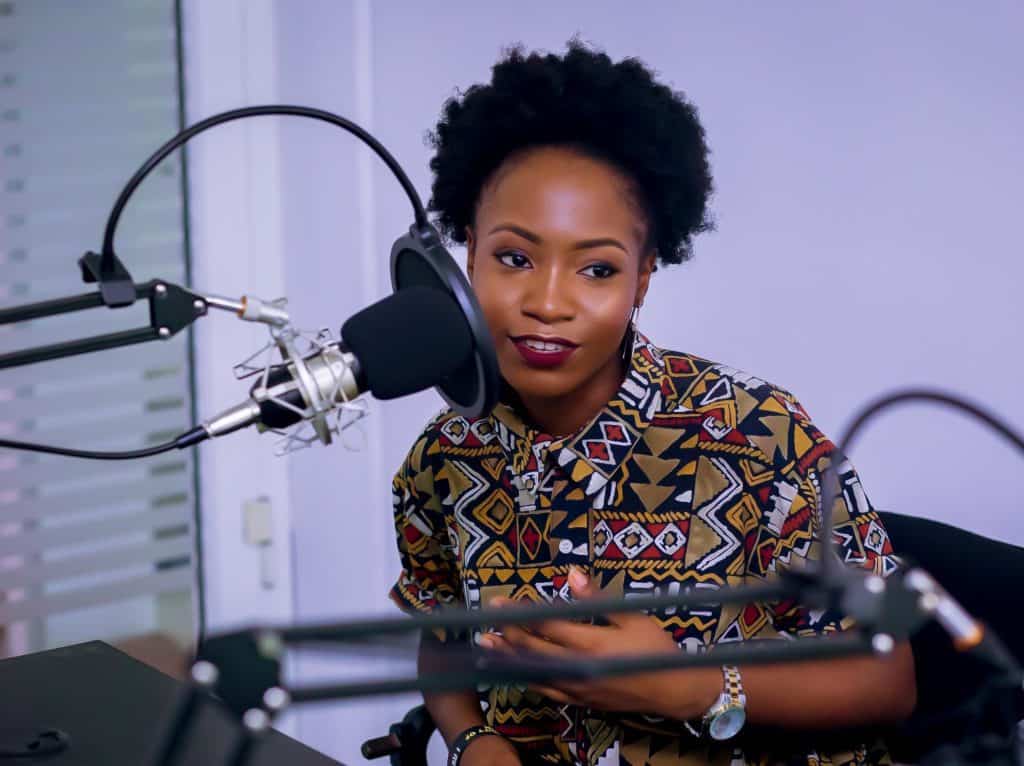How To Pick The Topic for Your Podcast

The COVID-19 lockdown has impacted podcasting in two conflicting ways. First, it has allowed potential podcasters the time at home to finally check off the START PODCAST task in their daily to-do app. Second, it has eliminated commutes for millions of Americans and slowed the growth of podcast listening.
But with recent news that the number of podcasts has grown to over one million, the winds blow favorably for podcasting in the future. Unless you’re a potential podcaster backed by a large podcast production company, you will have to supply technical expertise, hosting skills and some measure of subject matter expertise in order to achieve even a modest measure of success.
Related reading: the best podcast hosting services

However, before the purchase of recording equipment, the downloading of software and the hours of watching YouTube videos on public speaking, you will need to pick a topic for your podcast.
For aspirational podcasters, it is the topic they’ve chosen that drives their desire to podcast. For example, look at the number of podcasts begun by newbies about their favorite TV show. Back in the middle ages of podcasting in 2013, the sudden popularity in late 2013 of a Fox TV show called Sleepy Hollow about supernatural forces in the Westchester County town on the Hudson River generated a significant number of podcasts from large companies and talented amateurs whose followers were called “Sleepyheads.”
HBO’s Game of Thrones has generated about as many podcasts as it has gory deaths of characters on the show, as have other media sensations such as Beyonce, Taylor Swift and Tiger King.
Even politics has become a thoroughbred in the race to generate podcasts. A polarized political landscape and the election of Donald Trump has lit the Promethean fire to develop podcasts that either revile or support his unique behavior.
Moreover, podcast ratings have demonstrated a listener fascination for true crime podcasts, with so many being generated that it’s discouraging to realize how much true crime there is to report on in a podcast.
Topical topics
Let’s suppose your passion drives you to podcast about a topic that has been as overexposed as the Kardashians. If you choose a topic that has ample coverage, success can still be yours. You’ll need excellent hosting skills, a slick podcast format and strong production values. After all, sports teams like the Dallas Cowboys, Manchester United and Real Madrid spark thousands of podcasts hosted by face-painting fans that attract many listeners who are like-minded fans.
If you are searching for a podcast topic that many pundits dismiss as “niche,” don’t listen to those experts. Many of these podcasts with topics that media pros considered to “narrow in scope” often dominate listener rating charts on a weekly basis.
For instance, 99% Invisible, a podcast about design has generated a huge and loyal following. Even topics that generate thousands of podcasts can still stand out in the crowd by finding a new angle to a familiar subject.
Business podcasts are more numerous than internet trolls but two new business podcasts managed to stand out. First, these two podcasts enjoyed excellent production values and top-notch writing, but the real key was their ability to find a novel approach to familiar business topics.
APM’s Spectacular Failures hosted by Lauren Ober investigates colossal business collapses such as Kodak, Toys R Us, Lincoln Savings & Loan and MoviePass to understand the pathology of why business successes lapsed into complacency, stultification, and incestuous battles that resulted in their eventual demise.
Wondery’s Business Wars adds the element of mortal combat to the business world with multiple episodes that pit competitors against one another for market dominance. Right now, it’s Dunkin’ Donuts versus Starbucks. Past financial battles have included Nintendo versus Sony, Macys versus Gimbels and Boeing versus Airbus.
Even Vox’s The Impact waded into the crowded waters of political podcasts with a refreshing approach: Assessing how policy decisions – either laws or regulations – have human consequences, positive and negative, expected and unexpected.
Add a pinch of unique and a dash of different
One of podcasting’s inherent strengths is its ability to “narrowcast” – matching heretofore ignored issues with enthusiastic but under served listeners and podcasters with a passion for these projects.
In Profession Confession, for example, Gabe Noah and Tevin Pittman interview people who work in taboo or morbid industries: escorts, crime scene cleaners, dead baby photographers, morgue workers, bank robbers and prison inmates.
In Beautiful Stories from Anonymous People, comedian Chris Gethard receives an anonymous phone call from someone from around the world, and he isn’t allowed to hang up. After one hour, the call ends on its own, and he and the caller will probably never speak again. This set-up makes for beautifully open conversations with all sorts of people, from frustrated artists to talkative nurses and cult escapees. Chris listens, laughs, cries and asks questions, and we become aware of just how interesting people can be if we only get a chance to listen.
In a podcast landscape crawling with true crime stories, Who the Hell is Hamish? is unusual true crime podcast because there are no murders, no rapes or no big mystery. The podcast shares a winding, increasingly complex story about a conman who made millions off of unsuspecting families across Australia and the world.
There’s even a podcast about a New York City taxi driver called Taxi Tapes with one episode dealing with how Sam the driver almost ran over former Daily Show host Jon Stewart..
Does the subject matter?
There really aren’t any rigid rules about the topic of a new podcast. In essence, any aspirational podcaster can imbue meaning and interest into any topic as long as it’s produced to delight its listeners. Although it started as a radio show, NPR’s Car Talk, which ran from 1977 until 2012, still releases a weekly podcast that is a rerun of one of its radio shows from its extensive library of 35 years. Amazingly, a show hosted by two Italian brothers bathing in self-effacing humor and guffaws with gusto is still one of the most popular podcasts today. And it’s about car repair.
So the message about the topic of your podcast isn’t really what you shouldn’t do but more about opening yourself up to a cascade of ideas without self-censoring. After all, one of the top-rated podcasts today, the Joe Rogan Show, is hosted by a comedian who once emceed a reality TV show where contestants ate spider legs and worm guts.
Open your mind. Close your censor.













Comments
Comments are closed.